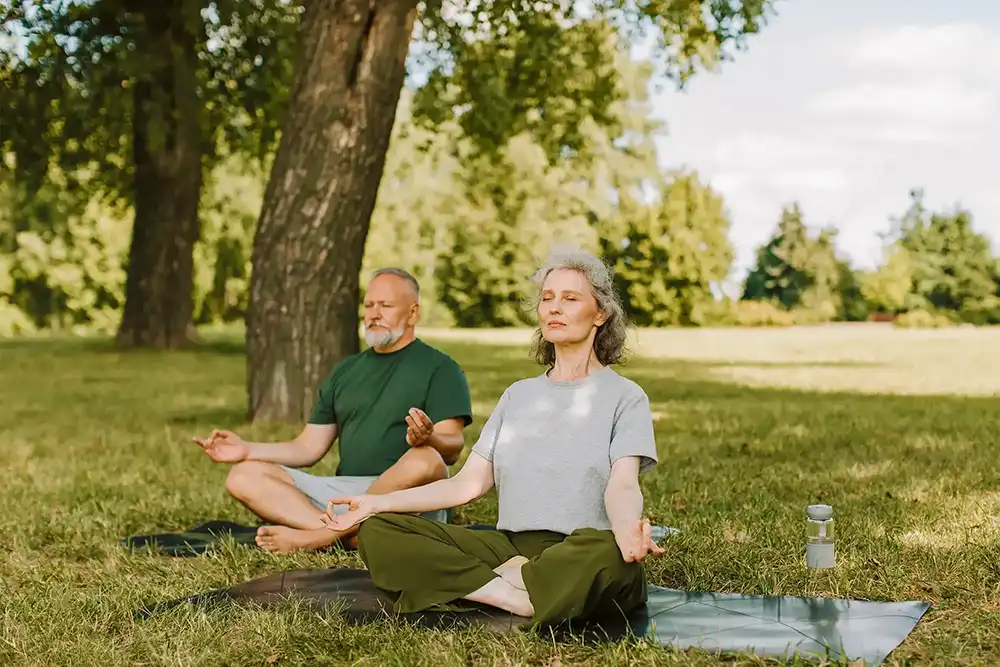The Longevity Lifestyle: Simple Steps to Live Longer and Feel Better

What you eat, how you move, and how you think can all have a profound impact on your longevity
A healthy lifestyle can help you maintain a healthy body weight, reduce your risk of chronic diseases, and improve your overall well-being.
There is no one-size-fits-all longevity lifestyle. However, there are some general principles that can help you live a lifestyle that will support a long and healthy life.
Diet

A healthy diet is rich in fruits, vegetables, whole grains, and lean protein. It is also low in saturated and trans fats, cholesterol, sodium, and added sugars.
Dr. David Sinclair, a professor of genetics at Harvard Medical School, says that "eating a healthy diet is one of the best things you can do for your longevity."
He recommends eating a diet that is high in antioxidants and polyphenols, which can help protect your cells from damage.
Exercise
Regular exercise is another important factor in longevity. Regular exercise can help you maintain a healthy weight, reduce your risk of chronic diseases, and improve your overall well-being.
The Centers for Disease Control and Prevention (CDC) recommends that adults get at least 150 minutes of moderate-intensity aerobic activity or 75 minutes of vigorous-intensity aerobic activity each week.
They also recommend that adults do muscle-strengthening activities that work all major muscle groups (legs, hips, back, abdomen, chest, shoulders, and arms) on two or more days a week.
Dr. Valter Longo, a professor of gerontology at the University of Southern California, says that "exercise is one of the most important things you can do for your longevity."
He recommends doing a combination of aerobic exercise and strength training.
Stress Management

Stress can take a toll on your health. Chronic stress can lead to high blood pressure, heart disease, stroke, and diabetes. It can also weaken your immune system and make you more susceptible to illness.
There are many ways to manage stress, including exercise, yoga, meditation, and deep breathing. Find what works best for you and make it a part of your daily routine.
Dr. Carla Perissinotto, a professor of medicine at the University of California, San Francisco, says that "stress management is essential for longevity."
She recommends finding ways to relax and de-stress, such as exercise, yoga, and meditation.
Sleep
Sleep is essential for your physical and mental health. When you don't get enough sleep, you're more likely to make mistakes, have accidents, and get sick. You're also more likely to experience mood swings and depression.
Most adults need around 7-8 hours of sleep per night. If you're having trouble sleeping, talk to your doctor. There may be an underlying medical condition that is causing your sleep problems.
Dr. Matthew Walker, a professor of neuroscience at the University of California, Berkeley, says that "sleep is the single most important thing you can do for your longevity." He recommends getting 7-8 hours of sleep per night.
Social Connections

Social isolation is a major risk factor for early death. Strong social connections can help you live a longer and healthier life. Here are some suggestions to get you started:
- • Make time for friends and family.
- • Get involved in your community.
- • Join a club or volunteer.
Social interaction can help reduce stress, improve your mood, and boost your immune system.
Dr. Julianne Holt-Lunstad, a professor of psychology at Brigham Young University, says that "social isolation is a major risk factor for early death."
She recommends building strong social connections and making time for friends and family.
Overall Longevity Lifestyle
A healthy lifestyle is the key to longevity. By eating a healthy diet, exercising regularly, managing stress, getting enough sleep, and building strong social connections, you can increase your chances of living a long and healthy life.
